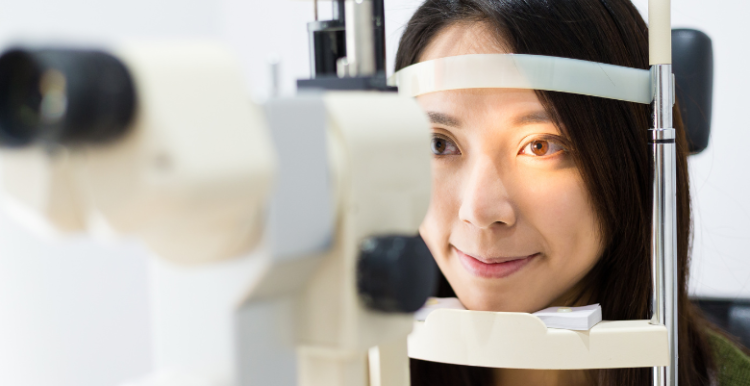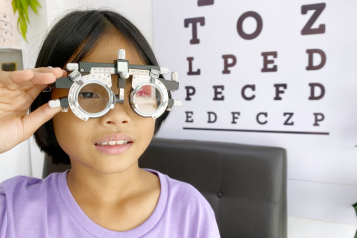Accessing eye care services: new report findings

Why did we do this research?
Most of us take our eyesight for granted unless something goes wrong. An estimated 50% of sight loss is avoidable which is why it’s important that people have regular eyesight tests to identify any issues as early as possible.
The NHS recommends having an eye test at least once every two years. You may be able to have a free NHS sight test more often than every 2 years if your ophthalmic practitioner or optometrist recommends you do.
However, recent polling suggests that millions of people do not regularly get eye tests, with 36% of the UK population not having a test in the last two years. Those on lower incomes are even less likely to have their eyes checked.
How did we carry out this project?
Our aim was to contribute to Healthwatch England’s research by gathering insight from residents in Westminster, focusing on the experiences of people from ethnic minority backgrounds. We ran a survey from July to September 2024 to understand:
- People’s recent experience of regular eye tests.
- People’s reasons for not having regular eye tests.
- People’s experience of currently or recently waiting for secondary eye care.
In total, Healthwatch England heard from 2,568 people about their eye care experiences.
- 1,766 people responded to the questions about having eye tests in the last two years.
- 471 people responded to the questions about currently waiting for secondary eye care.
What were the key findings?
Over two thirds (69%) of respondents had attended an eye test in the last two years which is in line with the NHS recommendation to have regular check-ups. People also reported that they valued continuity of care, clear communication, and the support they receive from their opticians to help them manage their eye health, particularly those with conditions like diabetes.
Among those who didn’t attend eye tests in the last two years, the main reasons for not attending were not feeling they needed to attend (25%) and not being able to afford to go (23%).
A total of 84% of respondents were eligible for free eye tests and 72% of people who answered the survey were aged 60 and over, and therefore entitled to free NHS eye tests based on their age. However, over three in five (63%) of participants who are eligible for eye care financial support noted that they find it difficult to afford extra costs. This includes the cost of additional tests, non-reflective coating on lenses and an additional pair of glasses at a reduced cost. The full report delves into the findings further.
Key recommendations
Based on the research findings, Healthwatch England set out the following steps to protect people from the rising impact of eye care costs:
- The Department of Health and Social Care should review support for the costs of NHS eye care for those on the lowest incomes.
- The Government and the NHS should consider a targeted communications campaign through direct channels to low-income eye care patients.
- The primary eye care sector should have clear guidelines for how staff should assist those on lower incomes without affecting their confidence in seeking care.
